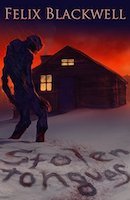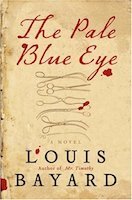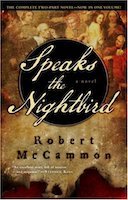5 stars. See, there's 5 stars, and then there's... 5 stars. A rating that makes you question every 5-star read before it, because none of them could’ve possible been this good. This book is definitely everything I look for in horror and more. It's a top contender for a Kelly Choice Award and I've already recommended it to friends and family. It's great on multiple levels: premise, writing style, imagery, characterization, themes, and narrative. It is full of disturbing moments and creative scares; it weaves mystery, folklore, culture, and history into two stunning and vibrant and distinct-but-similar sibling stories.
Let's get into it.
The Sea Dreams it is the Sky
"You do not know what I’ve been through,” he said. “And I do not know what you’ve suffered. There is a beyond to every woman and man. There is a beneath. There will always be misery in the world."
I suppose this story starts with a violent political coup in a fictional South American country. A young woman, who escapes the chaos and lands in another country, encounters another refugee of sorts: a much older, once-infamous poet. They strike up a kinship, perhaps out of shared trauma, and eventually he asks her to watch his apartment so he can return home for not entirely obvious reasons. She discovers many treasurers there, including a dark and mysterious manuscript that references the poet's extremely dark past and uncertain future.
I found this novella to be absolutely beautiful, brilliant, mind-blowing... even a little sexy. It's rare for me to want to highlight, or write down quotes, and I was fighting that urge every few pages. Isabel is wonderfully formidable and... prickly. I liked that about her. The story needed that. And her relationship with The Eye clicked. His characterization was a little less unusual, but very compelling. I rooted for them both.
But, of course, this is horror. Cosmic horror no less. And there's a delicious antagonist and a slippery - but terrifying - central conflict. Some of the details (the original text's title being translated to A Little Night Work, for example; and the content itself - known to the reader by vague reference only) were downright brilliant. BRILLIANT. The little motifs and recurrences - feed the cat, for your protection - I had fun with this. I had FUN with this. It reminded me of when I first encountered Stephen Graham Jones.
My Heart Struck Sorrow
"A piece of music draws you on, leading you places you’ve never been. You’d never think of journeying to."
This story follows a Library of Congress employee, returning to work after the tragic and untimely deaths of his wife and son. He and his colleague travel to the house of a recently-deceased ancestor of a pivotal figure in folklore preservation, who spent time in the 30s traveling the South and recording folk music for the Library. They find a stash of old records, his field journal, and much more than they bargained for.
This should've been my favorite based on the premise alone (I have a thing for musical horror), but it didn't impress me as much as TSDIITS. But there's so much to enjoy here, too. I have so many questions, which I'm sure is partly the point. It's like I want more, but also it could've been a little shorter. It's another frame narrative, with a story within the story, and there are a surprising amount of penises. That isn't a complaint, exactly (I'm a little tired of female breasts), but a couple times I was like ... is that necessary? Just consider yourself warned.
It's very clear that Jacobs did his research (for both of these) and that absolutely lends itself to the writing. I live in Alexandria, and I'm deeply familiar with the LOC, and he kind of nailed both (the part where he ruminates on justifying his existence for grant money... I felt that lol). I'd love to hear some theories about what the heck happened at the end, though. Maybe some brave soul will do a little rendition of Stagger Lee? I'd be into it.
...
Both of these stories explore potent, relevant, real-world themes: racism, war, absolute power, cultural and political trauma, America's failures (American as failure), corruption, oppression, guilt, punishment, justice or lack thereof, and the darkness found in humanity. There's a lot to think about. Some of it - especially in MHSS - made me uncomfortable. Jacobs checks himself through Hattie's character, but those moments felt a little contrived, or try-hard, like a last-minute safety net.
Anyway. As with all horror, not for everyone. But yes, yes, a thousand times yes for me. I haven't really read anything like it, and now I'm really hooked on this vibe. Look out for a re-read, because I won't be able to stay away.
A Lush and Seething Hell on: Amazon | Bookshop.org | Goodreads










